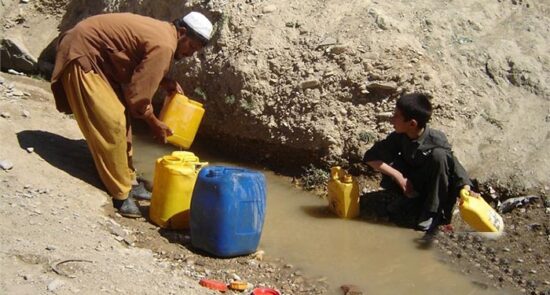UNICEF Warns of Kabul’s Groundwater Depletion by 2030
UNICEF warns that Kabul’s groundwater could be depleted by 2030 due to urbanization and climate change, emphasizing the need for immediate action and highlighting recent visits to assess water shortages.
The United Nations Children’s Fund (UNICEF) has issued a stark warning, stating that Kabul’s groundwater reserves could be depleted by 2030 due to rapid urbanization and the impacts of climate change. In a post on X, UNICEF emphasized the urgency of immediate action to prevent this outcome. Additionally, UNICEF reported that Roza Otunbayeva, the UN Secretary-General’s Special Representative in Afghanistan and head of UNAMA, along with UNICEF Afghanistan chief Tajuddin Oyewale, recently visited several areas in Kabul grappling with severe water shortages. The purpose of this visit, according to UNICEF, was to assess the situation and explore potential solutions to the worsening water crisis. Over recent years, numerous areas in Kabul have experienced acute water scarcity, with images of residents lining up to access water becoming increasingly common in media coverage.










